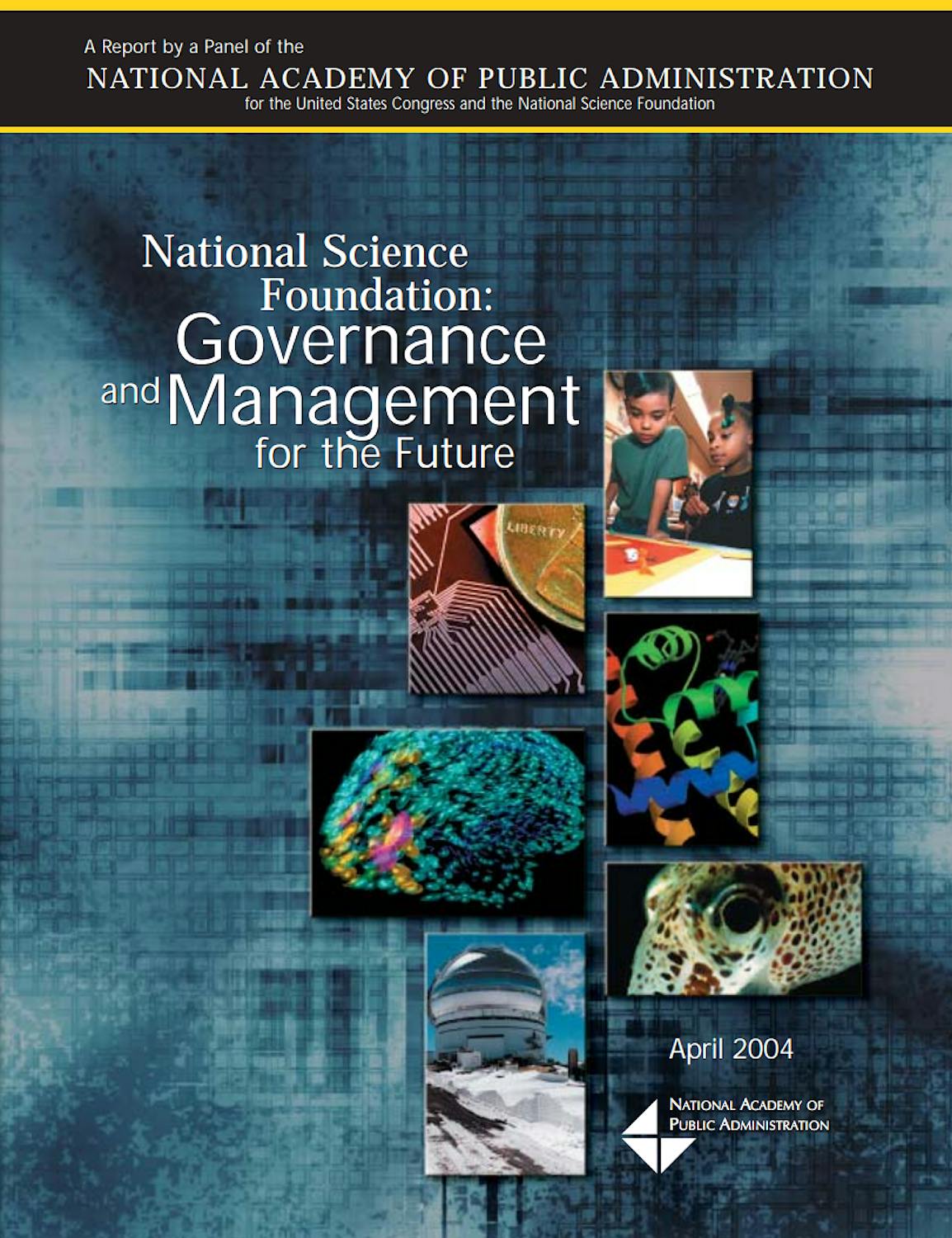
National Science Foundation: Governance and Management for the Future
Interested in preparing the National Science Foundation (NSF) for a multi-year build-up of its grant programs, in 2002, Congress asked the Academy to conduct an independent study of NSF to address four organizational and management issues related to its projected growth:
- The Role of the National Science Board
- Shaping the Research Portfolio
- Promoting Interdisciplinary and Innovative Research
- Using Rotators in Key Positions
Click the button below to view the View Study Report.
View ReportKey Findings
The study began in March 2003 and used a variety of techniques to collect information from diverse primary and secondary sources. Interviews were conducted with over 180 individuals, including current and former NSF executives and NSB members, key NSF staff and line managers, NSF program officers, university-based researchers, and members of other grant making organizations. In addition, the study team examined a substantial number of secondary sources and reference documents, including material provided by NSF staff, material identified through Internet searches, prior Academy studies, and studies done by others.
Recommendations
The Panel concluded that, although the NSB did not possess an exclusive franchise to establish national scientific policy, its authority to establish NSF policy and, in turn, influence the path of science in the Nation, should be its most important activity. While the Panel observed a perception of undue top-down influence among researchers and other NSF stakeholders, the Panel identified factors that suggested this was unlikely. The Panel found that NSF leadership and staff had made substantial efforts to encourage and facilitate interdisciplinary research. Finally, the Panel identified both advantages and challenges associated with the use of rotators as program officers and managers.
